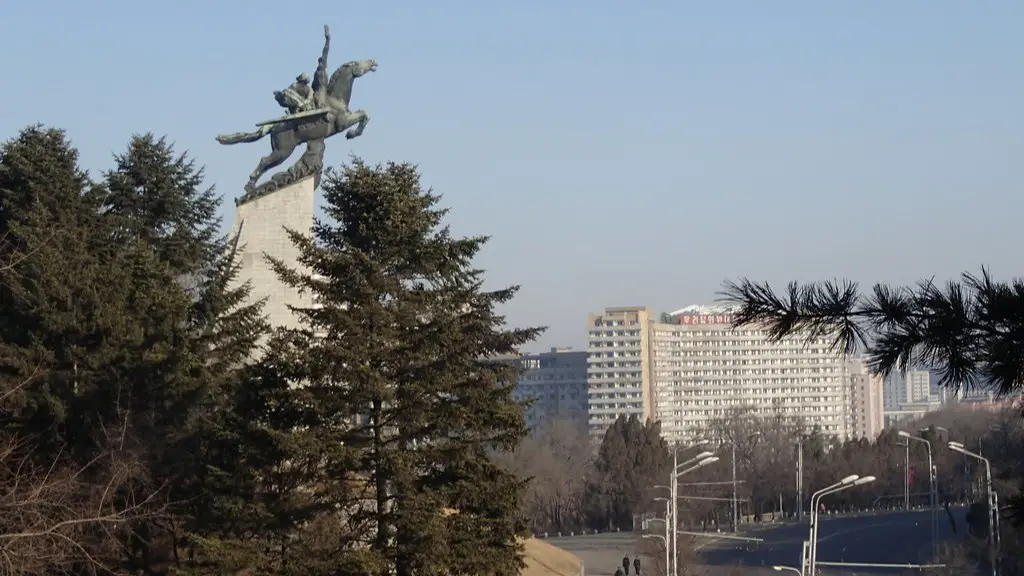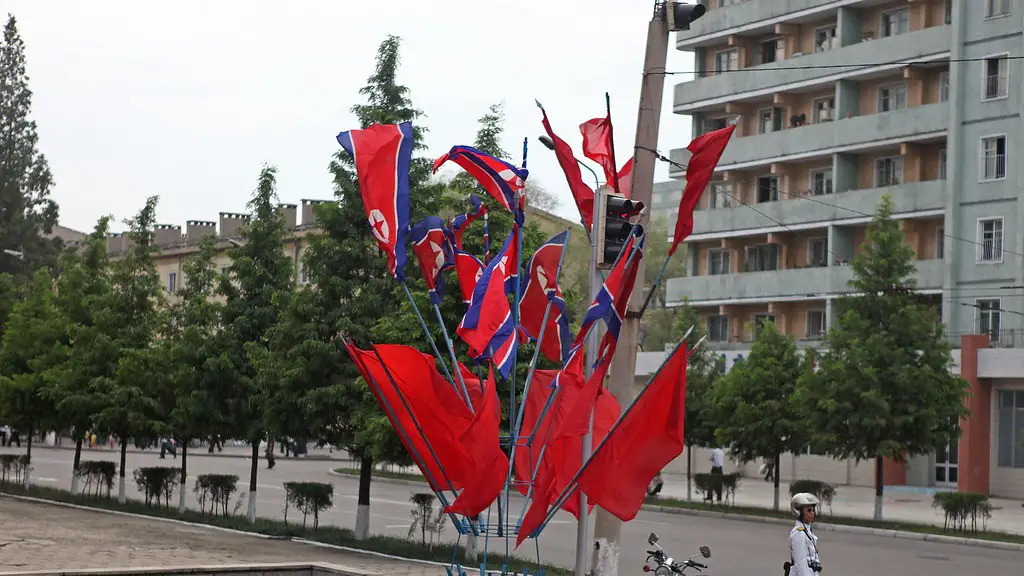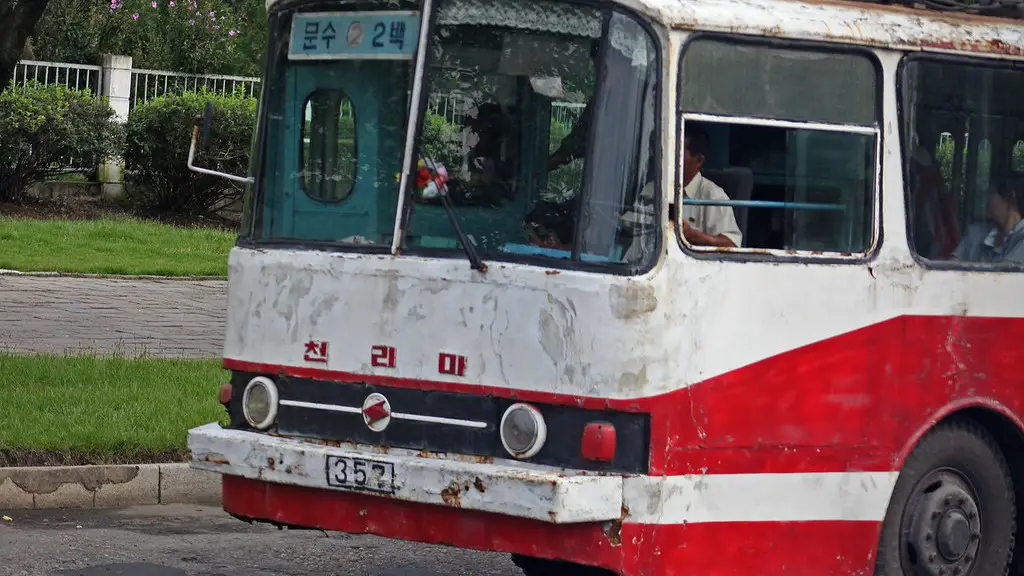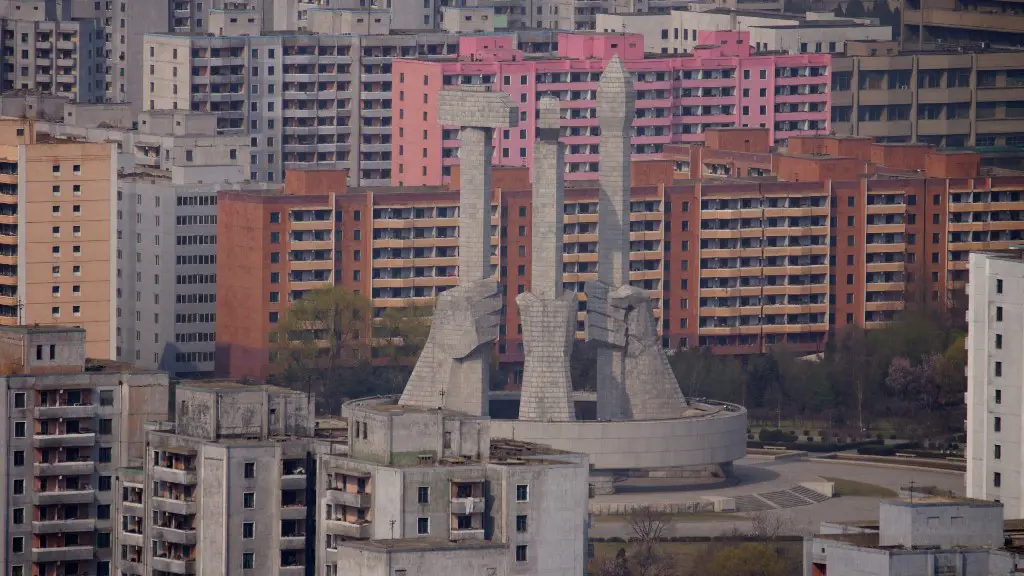Overview of North Korea
North Korea is a soil of tyranny and censorship, where visitors must adhere to a strict code of conduct at all times. At the same time, due to the close scrutiny of the government, North Koreans are not allowed to do many things that people in other countries take for granted. North Korea may be a relatively small, isolated country, but its government is known for implementing a long list of prohibitions and restrictions, and North Korean citizens must exercise caution to ensure their obedience.
Restrictions and Censorship
The North Korean government holds firm control over its citizens and their activities. Publications, films, and media, in particular, must follow the government’s rules and regulations or risk severe consequences. Books, magazines, and other forms of printed media must be approved by the government. Movies are heavily censored, with graphic and potentially sensitive scenes being removed. Even home videos must be approved by government censors. All publications, films, and media must promote the government’s image and one-party system. North Koreans are not only banned from accessing the internet, but all forms of communication are closely monitored and censored, making citizens unable to express themselves or seek information freely.
Religion
The North Korean government forbids citizens from practicing and spreading any form of religion, as the state’s ideology is built around the worship and glorification of the leader. Christianity, Buddhism, and other religious practices are not tolerated and anyone caught doing so risks severe punishment. Any signs of religious activities can be cause for arrest and state-sanctioned torture.
Performance Arts
North Koreans are forbidden from making artistic, musical, or scientific works without permission of the government. The few performance opportunities available are tightly monitored, and even then can only be performed if they are politically correct. Any type of non-government sponsored performance, or performances for private or personal purposes, are strictly prohibited.
Education
North Koreans’ education is closely monitored and controlled by the government. North Koreans are only allowed to attend school and universities that are approved by the state, and even then, only or politically correct courses or religious considerations can be taught. Furthermore, North Koreans are only allowed to study Kim Il-Sung’s Juche ideology and its approved scientific methodology, and must be taught to revere the North Korean leaders, otherwise risk expulsion or arrest.
Travel and Migration
The North Korean government severely restricts its citizens’ ability to travel abroad. All citizens must obtain permission from their local government in order to travel, and even then, they are only able to travel to a limited number of countries, and only under certain conditions. Those wishing to emigrate to a different country must get special permission from the state, which is rarely ever granted. Those who are found to have travelled without permission can be subject to hefty fines or even imprisonment.
Exchanges with Other Nations
Despite North Korea’s policy of isolation, the government still has very strict rules and regulations in regards to foreign nations. North Koreans are forbidden from engaging in any sort of diplomatic relationships with other nations, and are not allowed to receive or send any goods or items from other nations. North Koreans forbidden from accepting goods or services from foreign nations, as well as engaging in any sort of financial exchanges.
Clothing
Due to the North Korean government’s strict rules on clothing, citizens must adhere to a specific dress code or face severe punishments. All North Koreans are forbidden from wearing clothes that bear foreign symbols, messages, or logos, as well as garments in colors that are deemed inappropriate. Men must keep their hair closely shaved and military cut, and women must generally wear very conservative, loose-fitting clothing.
Foreign Music and Films
North Koreans are forbidden from listening to music, watching films, or otherwise indulging in entertainment that originates from outside the country. All foreign films, television shows, and music streamed or purchased in North Korea are heavily censored and edited, with anything deemed politically sensitive or inappropriate being removed or cut.
Technology
The North Korean government strictly prohibits any sort of foreign technology or technological advancements, such as laptops and mobile phones, from entering the country. North Koreans are only allowed to use phones or electronic devices that have been approved by the government. Furthermore, North Koreans are forbidden from connecting to foreign networks or accessing any type of foreign content.
Conclusion
From restricting access to foreign media and religious practices to severely limiting its citizens’ ability to travel and access technology, the North Korean government presents a long list of prohibitions and restrictions that citizens must abide by at all times. The government’s strong legal boundaries have helped maintain its iron-fisted control and have kept North Koreans from accessing any form of knowledge or information outside their own country. As a result, North Korea remains one of the most isolated and oppressive countries on Earth.
Internet and Social Media
The North Korean government strictly prohibits citizens from having any access to the internet. Any attempts to access the internet or connect to foreign networks can be punishable by prison sentences or even death. This includes social media outlets such as Facebook, Instagram, and Twitter. The government’s heavy censorship extends to North Korea’s intranet, which is only accessible to government officials, and is heavily monitored. Any attempts to access websites on the intranet that are not expressly approved by the government can be considered illegal and punished accordingly.
Foreign Contact
The North Korean government is highly suspicious of anyone in contact with foreigners, and any citizens caught engaging in any form of communication or exchange with visitors or foreign citizens can incur harsh penalties. North Koreans are forbidden from speaking with any foreigners and are not allowed to have any type of correspondence with them, aside from strictly monitored official interactions. Even North Koreans living abroad are considered dangerous, and can be subject to punishment upon returning to their home country.
Gambling
The North Korean government prohibits gambling of any kind, and any attempt to engage in any form of betting or wagering can be considered a criminal offense. This includes playing poker, buying lottery tickets, sports betting or any other games of chance. Any North Koreans caught engaging in any form of gambling can be punished with a large fine or imprisonment.
Education on the West
The North Korean government forbids citizens from obtaining any kind of education on the West as it can potentially lead to an ideological shift in the population. All education must strictly adhere to the North Korean ideology and must only promote the approved scientific methodology. Any citizens who are caught studying any type of Western education can be subject to punishment, as doing so can be seen as a sign of rejecting the government’s teachings and attempting to undermine its authority.
Propaganda and Public Displays
The North Korean government forbids citizens from engaging in any type of public display or acts of defiance. This includes wearing clothing with foreign symbols or otherwise displaying flags or banners with messages or slogans that counter the party’s ideology. North Koreans are also prohibited from verbally disseminating any type of criticisms, compliments, or remarks that are not in line with the one-party system. Furthermore, North Koreans are forbidden from expressing their political or religious beliefs in public or even to each other.



